Genus is a taxonomic rank used in the biological classification of living and fossil organisms as well as viruses. In the hierarchy of biological classification, genus comes above species and below family. In binomial nomenclature, the genus name forms the first part of the binomial species name for each species within the genus.
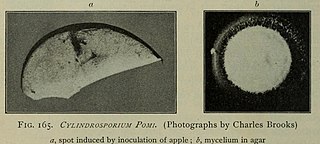
Mycosphaerella pomi is a fungus in the Mycosphaerellaceae family.
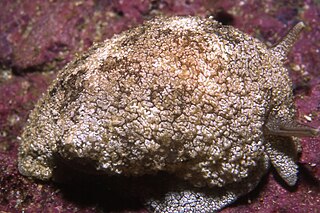
Pleurobranchaea is a genus of sea slugs, specifically sidegill slugs or notaspideans. These are marine gastropod molluscs in the family Pleurobranchaeidae. The genus is differentiated from other sidegill slugs by its rhinophores, which are well separated, rather than being joined under the notum. This genus has recently been coined sea owls which is the common name in Japanese for Pleurobranchaea japonica.

Phylinae is a subfamily of the plant bug family Miridae. Species of this family are found worldwide.

Phylini is a tribe of plant bugs in the family Miridae, based on the type genus Phylus. There are at least 440 described species in Phylini.
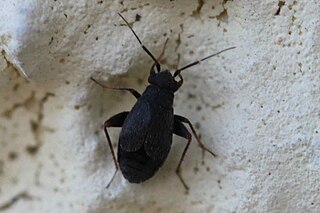
Chlamydatus is a genus of plant bugs in the family Miridae. There are more than 30 described species in Chlamydatus.

Europiella is a genus of plant bugs in the family Miridae. There are more than 30 described species in Europiella.
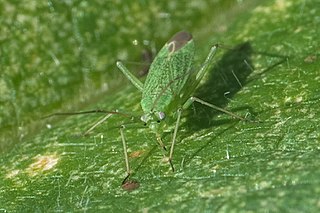
Brooksetta is a North American genus of plant bugs in the family Miridae. There are about 13 described species in Brooksetta.

The Interim Register of Marine and Nonmarine Genera (IRMNG) is a taxonomic database which attempts to cover published genus names for all domains of life from 1758 in zoology up to the present, arranged in a single, internally consistent taxonomic hierarchy, for the benefit of Biodiversity Informatics initiatives plus general users of biodiversity (taxonomic) information. In addition to containing over 490,000 published genus name instances as at March 2020, the database holds over 1.7 million species names, although this component of the data is not maintained in as current or complete state as the genus-level holdings. IRMNG can be queried online for access to the latest version of the dataset and is also made available as periodic snapshots or data dumps for import/upload into other systems as desired.
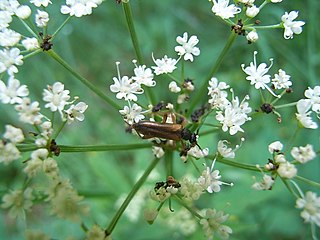
Alosterna is a genus of beetles belonging to the family Cerambycidae.

Licea is a genus of slime molds belonging to the family Liceidae.
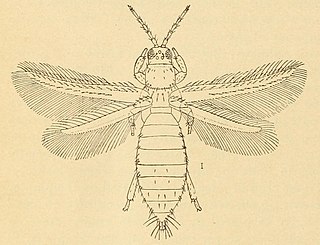
Frankliniella is a genus of thrips belonging to the family Thripidae.

Geodromicus is a genus of beetles belonging to the family Staphylinidae.
Hylis is a genus of beetles belonging to the family Eucnemidae.

Enteridium is a genus of slime molds belonging to the family Reticulariaceae.
Chapmania is a monotypic genus of flatworms belonging to the family Davaineidae. The only species is Chapmania tauricollis.
Thysaniezia is a genus of flatworms belonging to the family Taeniidae.

Milteliphaster is a genus of echinoderms belonging to the family Goniasteridae.

Pachygrontha is a genus of seed bugs and allies in the family Pachygronthidae. There are more than 30 described species in Pachygrontha.















